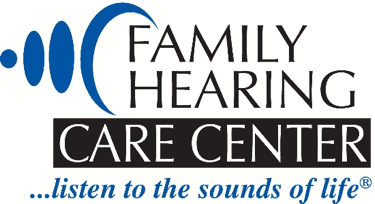
The Sound of Care: Daily Maintenance for Lifelong Hearing Health
In the symphony of life, our hearing is an invaluable instrument. Yet, like any delicate instrument, it requires regular maintenance to ensure it functions at its best. In this article, we will delve into the realm of hearing health maintenance, exploring the latest advancements in hearing loss prevention, diagnosis, and management. By incorporating recent research and touching on potential futuristic interventions, we aim to emphasize the profound importance of early detection and compassionate care for preserving the gift of sound.
The Soundscape of Hearing Loss
Hearing loss is often a gradual process, one that can be easily overlooked or ignored until it reaches a critical point. Our modern world bombards us with an incessant stream of sounds, from the soothing whispers of nature to the cacophony of urban life. The continual exposure to loud noises, coupled with factors like genetics, age, and certain medical conditions, can lead to hearing loss.
Preventing Hearing Loss
Prevention is the first and foremost pillar of hearing health. One of the most effective ways to protect your hearing is through noise management. This involves recognizing potentially damaging environments and wearing hearing protection, such as earmuffs or earplugs, when necessary. Furthermore, the use of personal audio devices at safe volume levels and regular breaks from noisy environments can significantly reduce the risk of noise-induced hearing loss.
Recent advancements in hearing protection technology have made it easier than ever to preserve our hearing. Innovative hearing protection devices now offer customized solutions, allowing individuals to enjoy clear communication while safeguarding their ears from harmful noise exposure. These technologies have the potential to revolutionize hearing loss prevention by making protection more accessible and comfortable.
The Importance of Regular Check-Ups
Regular check-ups with a qualified audiologist are crucial for maintaining hearing health. A professional hearing assessment can detect subtle changes in your hearing abilities long before they become noticeable in everyday life. Early detection of hearing loss provides a golden opportunity for intervention and management.
Recent research has highlighted the significance of early intervention in preserving hearing health. Studies suggest that individuals who seek help for hearing loss in its early stages tend to experience better outcomes with hearing aids and other interventions. Additionally, early intervention can mitigate the negative social and emotional impacts often associated with untreated hearing loss, such as isolation and depression.
Diagnosis and Management
Diagnosing hearing loss involves a comprehensive evaluation conducted by an audiologist. This evaluation includes a discussion of your medical history, a visual inspection of the ear canal, and a series of hearing tests. These tests assess your ability to hear different frequencies and determine the degree and type of hearing loss, if present.
The latest advancements in audiology have brought about state-of-the-art diagnostic tools and techniques. High-resolution imaging technology, such as advanced otoscopy and computerized tomography (CT) scans, enables audiologists to visualize and diagnose issues within the ear with greater precision. Additionally, advanced audiological testing methods can provide more accurate and individualized information about a patient’s hearing abilities.
Hearing Aids: A Lifeline to Sound
For many individuals with hearing loss, hearing aids are transformative devices that reconnect them with the world of sound. Modern hearing aids are technologically advanced, offering features like noise cancellation, connectivity to smartphones and other devices, and inconspicuous designs. These developments have made hearing aids more accessible, convenient, and effective than ever before.
The future of hearing aids holds the promise of even greater innovation. Researchers are exploring the integration of artificial intelligence (AI) into hearing devices, enabling them to adapt dynamically to different listening environments. Moreover, cochlear implants, a powerful intervention for profound hearing loss, continue to improve in terms of performance and compatibility.
Futuristic Interventions
Looking ahead, there is a growing interest in regenerative medicine as a potential cure for certain types of hearing loss. Research in stem cell therapy and gene editing techniques has shown promise in restoring damaged inner ear structures and reversing hearing loss in animal models. While these interventions are still in the experimental stage, they offer a glimmer of hope for the future of hearing health.
Compassionate Care
In conclusion, daily maintenance of hearing health is not just a routine task; it is a lifelong commitment to the preservation of one of our most precious senses. Prevention, early detection, and timely intervention are the keys to maintaining hearing health, and they can significantly improve the quality of life for individuals affected by hearing loss.
As hearing professionals, our mission is to provide compassionate care, guidance, and the latest advancements in audiology to our patients. By staying informed about emerging technologies and advocating for regular check-ups, we can ensure that the symphony of sound continues to enrich the lives of all.
Let us remember that hearing health is not just about hearing; it is about understanding, connecting, and experiencing the world in all its auditory splendor. With diligence and compassion, we can help individuals protect and cherish this invaluable gift of sound.
